Sarcoidosis (and Other Granulomatous Diseases)
Misha Rosenbach, MD
Associate Professor, Dermatology & Internal Medicine
Director, Cutaneous Sarcoidosis Clinic
University of Pennsylvania
Misha Rosenbach, MD
Associate Professor, Dermatology & Internal Medicine
Director, Cutaneous Sarcoidosis Clinic
University of Pennsylvania
Amy J. McMichael, MD, FAAD
Professor and Chair
Department of Dermatology
Wake Forest Baptist Medical Center
Winston-Salem, NC
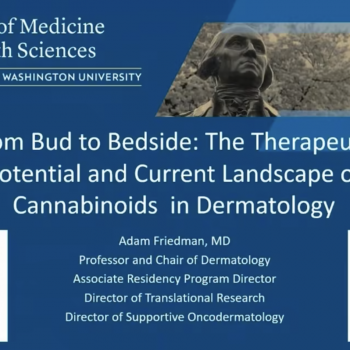
Puff Puff and don’t pass on the great potential cannabinoids have to expand our current armament of therapeutics and address unmet clinical needs. Used for generations, derivatives of the cannabis plant have a storied history in traditional medicine only to be cast away in the 20th century through legislation and ultimately by being classified as a Schedule I substance. Yet, times they are a changing, and the study of this once US wide illegal drug led to the discovery of our own internal endocannabinoid system which is responsible for regulating a broad range of biological activities from sensation to inflammation. There has been an explosion in research and development targeting the skin’s inherent endocannabinoids system to combat inflammatory skin diseases. Do be caught downwind of these exciting and emerging developments!
Presenter: Adam Friedman, MD, FAAD is Professor and Chair of Dermatology and serves as Associate Residency Program Director, Director of Translational Research, and Director of the Supportive Oncodermatology Program in the Department of Dermatology at The George Washington University School of Medicine & Health Sciences.
Hear from cardiologist Dr. Nehal Mehta, as he discusses the systemic inflammation of psoriasis and its long term effects on the vascular system.
Presenter: Nehal N. Mehta, MD, MSCE, FAHA is the Lasker Senior Investigator and Chief of Inflammation and Cardiometabolic Diseases at the National Heart, Lung, and Blood Institute in Bethesda, MD. He is also Clinical Professor of Medicine at the George Washington School of Medicine and Health Sciences and an Adjunct Associate Professor at the Penn Perelman School of Medicine.
Special thanks to Jannsen, Sanofi, Regeneron, and Lilly for their support of this event.
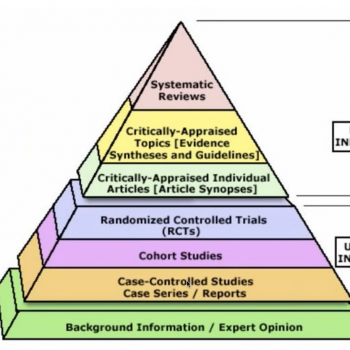
Presenter: April W. Armstrong, MD, MPH is the Associate Dean of Clinical Research, Professor of Dermatology, and Vice Chair at the University of Southern California Keck School of Medicine.
Special thanks to Sanofi Genzyme, Regeneron, and Jansen for their support of this event.
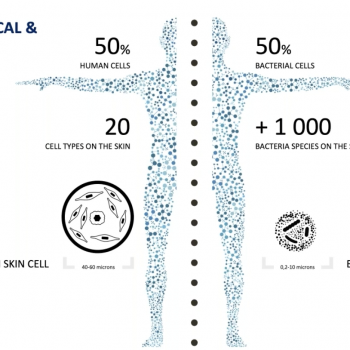
Presenter: Richard Gallo, MD, PhD is an Irma Gigli Distinguished Professor and the Chairman of the Department of Dermatology at the University of California San Diego.
This activity was supported with an educational grant from Galderma.
Special thanks to Sanofi Genzyme and Regeneron for their support of this event.
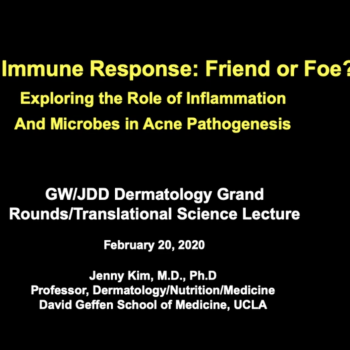
In this edition of the GW/JDD Translational Research Lecture Series, Chief of Pediatric Dermatology at the University of Cinncinatti and GW/Children’s National native Dr. Kalyani Marathe highlights the delicate and engendering approach to lichen sclerosus and reviews novel research that scratches beneath the surface of this pathophysiologically elusive, pruritic, disabling and deforming condition.
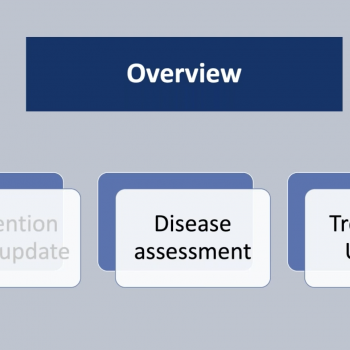

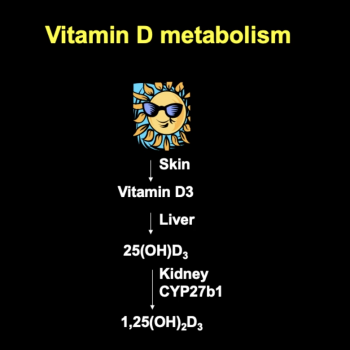
Dr. Jenny Kim will review skin’s important role as an immune organ and what happens when dysregulation occurs.
Presenter: Jenny Kim, MD, PhD is a Professor of Clinical Medicine at the David Geffen School of Medicine at UCLA and Chief of Dermatology at the Greater Los Angeles Healthcare System Veterans Affairs.
Special thanks to Ortho Dermatologics, Lilly, and Novartis for their support and exhibition at this event.